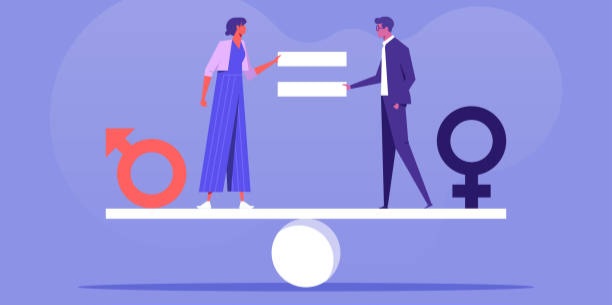The UN Women’s ‘Why Women Earn Less? report, published last year, reveals that women earn 21% less than men in the East and Southern Africa region. This income disparity, known as the ‘Gender Pay Gap’ reinforces traditional notions of male superiority but also hinders the overall economic growth of countries, perpetuating poverty.
Economists estimate that in Sub-Saharan Africa, the gender pay gap could be impeding GDP growth by up to 0.9%, compared to faster-growing Asian economies. Some studies suggest that this gap is costing the world economy a collective $7 trillion.According to The World Bank, “Gender biases and inequalities, placing women in low-wage occupations, differences in jobs and hours worked, and women’s disproportionate care-giving responsibilities contribute to the gender wage gap.”
Adding to these challenges is the worldwide taboo surrounding discussions about money. As European Commission President Ursula von der Leyen rightfully put it: “There is not a single argument why – for the same type of work – a woman should get paid less than a man. Not a single argument, not a single one.”
So, how can we reduce this gap?
Some of the gap is explained by what is called ‘Sectoral segregation’; as mentioned in the quote above, women occupy positions in sectors where pay is generally lower (education, social work, care-giving, etc.) and struggle to access certain higher paid positions in the finance or technology sectors. Affirmative action is actively pursued in Africa and beyond, encouraging girls to pursue studies in STEM (science, technology, engineering, and maths), with the goal of fostering gender equality in higher-paid, male-dominated fields.
Shifting towards a more equal share of family responsibilities would favour working women, though cultural norms continue to make this a challenging endeavor. Meanwhile, greater transparency, needed to correct the gap, is slowly being implemented, as private sector companies are urged to analyse and report gender pay gaps.
Increasing awareness is crucial to altering these tendencies. In France, annual campaigns are launched to underscore the concerning reality that, due to the wage gap, women essentially work for free from November 6th until the end of the year.
Another significant aspect is that women are reported to be ‘less likely’ to ask for a raise or a promotion. As women, it’s crucial to recognise our worth, learning to pose uncomfortable questions and advocate for what we rightfully deserve despite societal expectations. Closing this gap would have a significant impact on not only gender equality but societal growth and well being worldwide.











